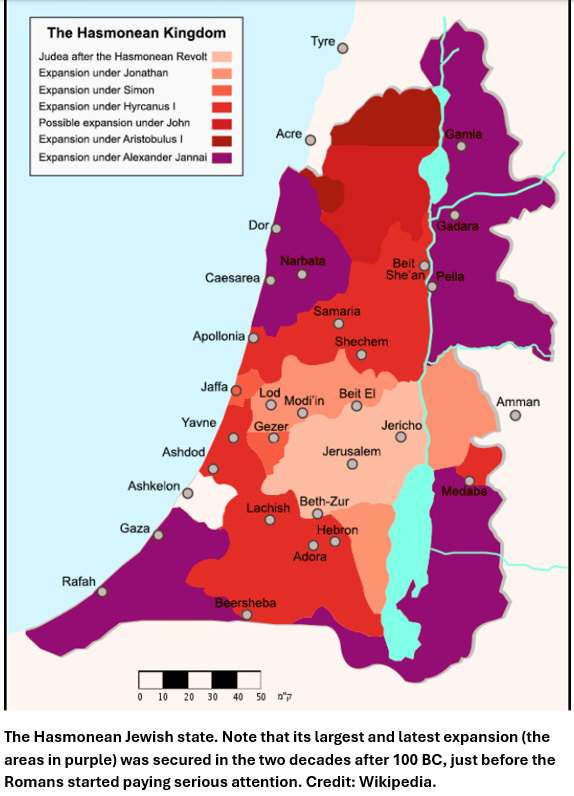To check all previous newsletters in the History of Mankind, which is pretty long, you can click here.
Even as the so-called Hasmonean clan evolved from hereditary Seleucid governors into quasi-sovereign kings of Judaea, they – even more than the Ptolemies of Egypt – needed to work closely with the powerful Jewish priesthood.
Elsewhere, kings or poleis issued laws, not gods. In Judaea, any human law struggled to position itself against the Ten Commandments listed in the Torah, with their absolute imperatives, and the complementary set of laws and prescriptions in the book of Exodus, often called the Covenant Code1.
This religious legislation was implemented by the Jerusalem Sanhedrin, which takes its name directly from the Greek original synedrion (“assembly”) and was in many senses a Jewish version of the poleis’ boule, Greek-style senates with either aristocrats or representatives elected or chosen by lot from among larger popular assemblies. The Jewish synedrion had priests instead, and served senatorial functions in Jerusalem, while smaller, provincial and also priest-filled Sanhedrins functioned, as local councils did across the Mediterranean, as local courts and representative chambers.
Keep reading with a 7-day free trial
Subscribe to A History of Mankind to keep reading this post and get 7 days of free access to the full post archives.




